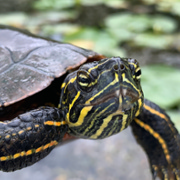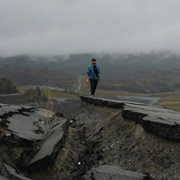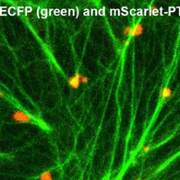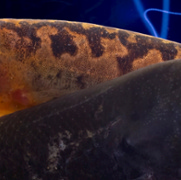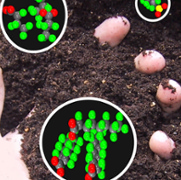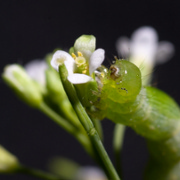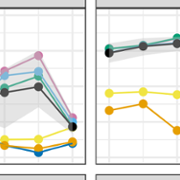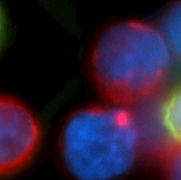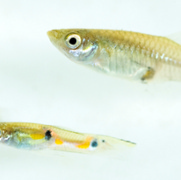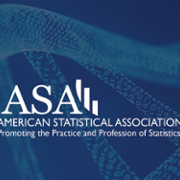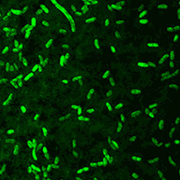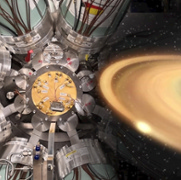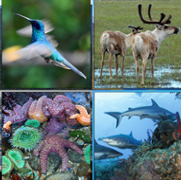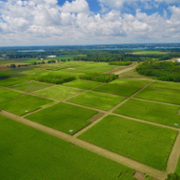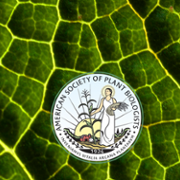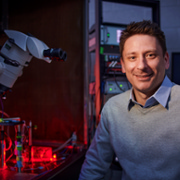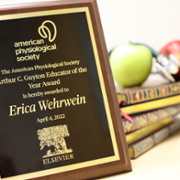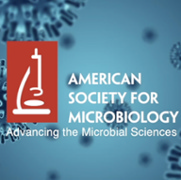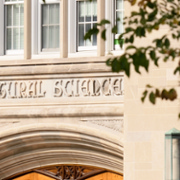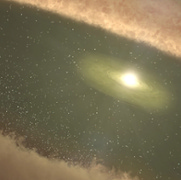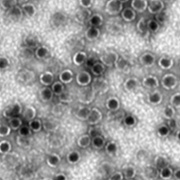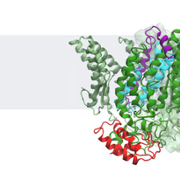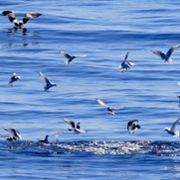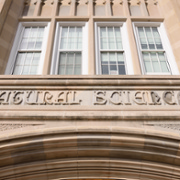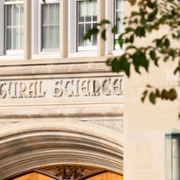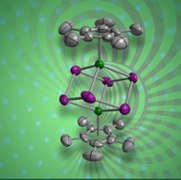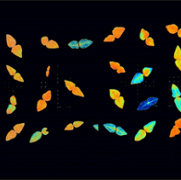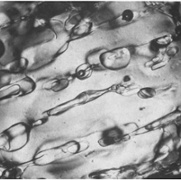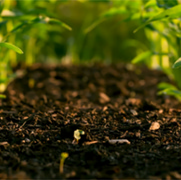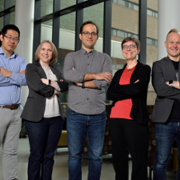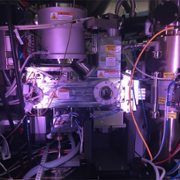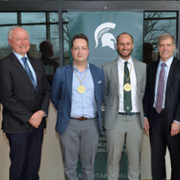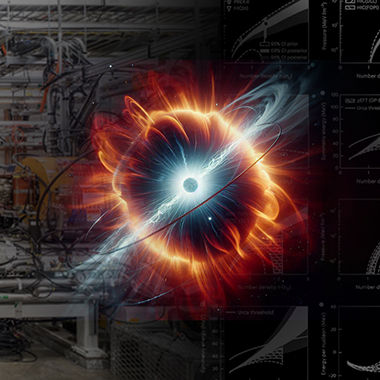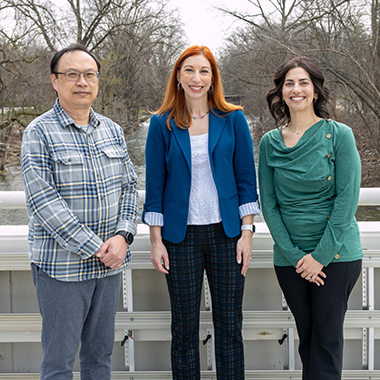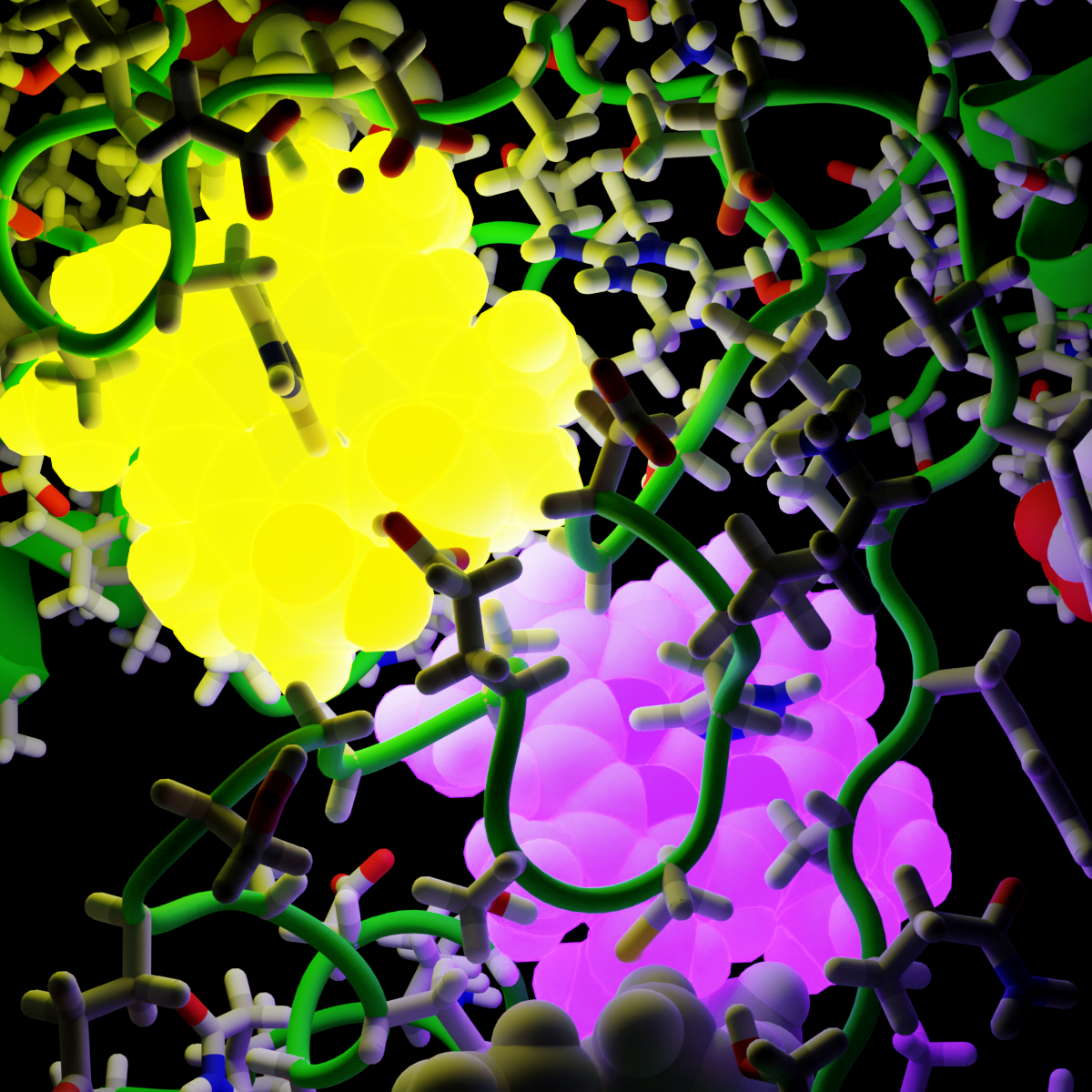News
June 27, 2022
The National Institutes of Health have awarded Michigan State University researchers $2.7 million to continue developing artificial intelligence (AI) algorithms that predict key features of viruses as they evolve. The team is led by Guowei Wei, an expert in AI who has published nearly 30 papers on COVID-19, and Yong-Hui Zheng, whose extensive background in virology is helping verify and improve AI predictions. The team also includes Jiahui Chen, a visiting assistant professor at MSU who played an essential role in developing the AI models.
June 23, 2022
An international team of 114 scientists has performed the most comprehensive study of aging and longevity to date with data collected in the wild from 107 populations of 77 species of reptiles and amphibians worldwide. The team, led by researchers at Michigan State University, Pennsylvania State University and Northeastern Illinois University, reported its findings in the journal Science on June 23.
June 16, 2022
Songqiao “Shawn” Wei, an Endowed Assistant Professor of Geological Sciences in the Department of Earth and Environmental Sciences in the College of Natural Science at Michigan State University, has been studying the earthquakes in response to Earth’s tectonic plate movement around the world. In this "Ask the Expert" column, he explains earthquakes, how they are detected and his current research related to them.
June 15, 2022
The ability of a plant to grow and reproduce – including the crops we rely on – is directly associated with the motility of organelles within the plant. Understanding how these organelles move is key to developing crops that can survive and thrive in stressful environmental conditions. MSU plant biologist Jianping Hu, has received a 4-year, $900,000 National Science Foundation grant to study the motility of cellular energy organelles in the common mustard plant, Arabidopsis thaliana. The knowledge gained will provide fundamental insights into the principles associated with the motility of plant organelles and perspectives on how these molecular machineries evolved.
June 13, 2022
Cheryl Sisk, MSU professor of behavioral neuroscience and psychology, is recipient of the 2022 Daniel S. Lehrman Lifetime Achievement Award from the Society for Behavioral Neuroendocrinology for her outstanding career as a researcher and educator. Sisk, an MSU Distinguished Professor and associate dean for faculty development in the College of Natural Science, has been instrumental in moving her field, program, and college forward. As one of the leading researchers in the field of neural development, Sisk has dedicated her career to the study of brain and behavioral development during puberty and adolescence.
June 1, 2022
Researchers at Michigan State University and the University of Texas at Austin have made a shocking discovery. In a study published June1 in the journal Science Advances, the team explained how small genetic changes enable weakly electric fish to evolve their electric organs. The findings could have broader implications for human health and disease.
May 31, 2022
MSU chemists are discovering new information to help remediate “forever chemicals” by showing for the first time how they interact with soil at the molecular level. The researchers, Narasimhan Loganathan and Angela K. Wilson in the MSU College of Natural Science, published their findings May 11 online in the journal Environmental Science & Technology.
May 31, 2022
An integrated approach to land management practices in the United States can reduce carbon dioxide in the atmosphere far more than earlier estimates based on separate approaches. MSU researchers including ecosystems ecologist Phil Robertson and colleagues from Colorado State University and the University of Aberdeen in the U.K. are now finding how combining practices might reduce carbon dioxide levels critical for keeping the global temperature increase below two degrees Celsius by year 2100. Their research was published May 31 in the journal Global Change Biology.
May 30, 2022
Gregg Howe, an MSU College of Natural Science researcher internationally known for his work on plant resilience and how plants respond to insect attacks, will be heading to the University of Tsukuba in Japan as a Fulbright U.S. Scholar for the 2022-2023 academic year. Howe and his collaborators will apply cutting-edge genetic technologies to the development of crop plants that will contribute to sustainable agriculture and food security.
May 27, 2022
Postdoctoral researcher Jeff Doser and his team at Michigan State have developed a unique model to analyze declining biodiversity and understand the changes occurring within individual species and across broader wildlife communities. In a new paper, published in Methods in Ecology and Evolution, the team shows how integrating data from multiple species and data sources can take analyses a step further than previous approaches.
May 26, 2022
MSU researchers are unveiling and studying chemical clues that could lead to better diagnoses and treatments for a metastatic form of breast cancer. Sophia Lunt, associate professor in the MSU Department of Biochemistry and Molecular Biology and her team—whose research focuses on understanding the role of metabolism in metastasis—are now reporting results from their work on triple negative breast cancer and how it spreads to other parts of the body. Lunt’s latest research, funded in part by a new $2 million grant from the National Institutes of Health, was recently published in the journal Nature on May 18.
May 25, 2022
On the list of scientific tools that help us understand health, evolution or the environment, the Trinidadian guppy doesn't often come to mind. The fish are more often thought of as aquarium pets in the United States and, in their native Trinidad, wild guppies are so ubiquitous, they’re almost taken for granted. But thanks to a unique combination of biology and ecology, guppies have provided researchers with insights into evolution for decades. Integrative biologists Sarah Evans and Sarah Fitzpatrick are studying these fish to help probe big questions about how microbes living in host organisms contribute to health, survival and quality of life. The results of their research was recently published in the journal Proceedings of the Royal Society B.
May 23, 2022
Yuehua Cui, MSU professor in the Department of Statistics and Probability, has been selected as a Fellow of the American Statistical Association (ASA) for his contributions and leadership in the fields of statistical genetics and genomics Cui is one of 48 members designated as an ASA fellow this year. He was recognized “for outstanding contributions to methodology development and applications in statistical genetics and genomics; for exemplary mentoring of graduate students and junior researchers; and for significant service to the profession.”
May 20, 2022
The gut microbiome has made a huge splash in human health with numerous products popping up promising vast benefits to everything from a healthy digestive system to better mood regulation. But humans aren’t the only ones partnering up with viruses, bacteria and fungi. Researchers at Michigan State University are peering into the dazzling world of microbiomes in plants and animals, searching for keys to a healthier world.
May 18, 2022
Michigan State researchers have helped peer inside a nova — a type of astrophysical nuclear explosion — without leaving Earth. These stellar events help forge the universe’s chemical elements, and Spartans helped explore their nature with an intense isotope beam and a custom experimental device with record-setting sensitivity at the National Superconducting Cyclotron Laboratory, or NSCL. The team, led by MSU physics Professor Christopher Wrede, published its work May 3 in the journal Physical Review Letters.
May 17, 2022
Popular conservation campaigns featuring mammals with big eyes and fuzzy features implies that to be saved, an animal best be cute. Yet species less well known and not as visually pleasing have essential roles within our ecosystems and are sometimes left out of critical assessments of our world’s biodiversity. Several faculty members in MSU's Ecology, Evolution, and Behavior program, including integrative biologist Phoebe Zarnetske, indicate that a focus on species providing ecosystem services may be the way forward to increase inclusivity for these important and lesser-known creatures.
May 16, 2022
MSU microbial ecologist Sarah Evans is one of 22 leading sustainability scientists named to the 2022 North American cohort of the Earth Leadership Program. The program enables scientists to work collaboratively with diverse stakeholders and become agents of change within and beyond their universities. Evans is interested in how microbial communities respond to their environment, and how this response affects ecosystems.
May 10, 2022
Five MSU College of Natural Science faculty members are among nine MSU scientists receiving 2022 awards from the American Society of Plant Biologists (ASPB). Erich Grotewold and Jiming Jiang were named ASPB Fellows; Emily Josephs received the Early Career Award; Beronda Montgomery received the Adolph E. Gude, Jr. Award; and Berkley Walker is the recipient of the Robert Rabson Award. This year’s recipients will be presented with their awards at the Plant Biology 2022 Worldwide Conference in July in Portland, Ore.
May 9, 2022
Shane Crandall always welcomes new challenges. It’s exploring the unknown that motivates the assistant professor in Michigan State University’s Department of Physiology and Neuroscience Program to make new discoveries about the brain. Just last month, the National Institutes of Health awarded Crandall a five-year, $1.9 million grant to study how neocortical feedback projections influence sensory processing in the brain.
May 5, 2022
Erica Wehrwein, associate professor in the MSU Department of Physiology, was recently recognized for her teaching excellence and passion as a recipient of the 2022 Arthur C. Guyton Distinguished Educator Award by the Teaching Section of the American Physiological Society during the annual Experimental Biology meeting last month in Philadelphia.
April 29, 2022
A recent report from the Intergovernmental Panel on Climate Change found changes to Earth’s climate in every region of the world, noting the unprecedented scale and speed in warming of the planet’s surface over the past 200 years. To help address this problem, a report, "Microbes and Climate Change: Science, People, & Impacts," was issued by the American Society for Microbiology. It is the outcome of ASM’s November 2021 colloquium meeting, which brought together 30 experts, including MSU’s Jim Tiedje, who provided multifaceted perspectives and insights.
April 28, 2022
Six Michigan State University College of Natural Science faculty members– Jeffrey Conner, Victor DiRita, Gemma Reguera, Jetze Tepe, Christopher Waters and Marjorie Weber – and one graduate student – Nicholas Rekuski – have received 2021-2022 All-University Awards in recognition of their outstanding contributions to education and research. The MSU Awards Convocation for 2022 will be held on May 11, from 3:30 to 5:30 p.m., in the Big Ten Rooms at the Kellogg Center.
April 27, 2022
Michigan State University’s Seth Jacobson and colleagues in China and France have unveiled a new theory that could help solve a galactic mystery of how our solar system evolved. Specifically, how did the gas giants — Jupiter, Saturn, Uranus and Neptune — end up where they are, orbiting the sun like they do?
April 27, 2022
Thanks to a lesser-known feature of microbiology, Michigan State University researchers have helped open a door that could lead to medicines, vitamins and more being made at lower costs and with improved efficiency. The international research team, led by Henning Kirst and Cheryl Kerfeld, have repurposed what are known as bacterial microcompartments and programmed them to produce valuable chemicals from inexpensive starting ingredients. The team recently published its work in the journal Proceedings of the National Academy of Sciences.
April 26, 2022
Working with tiny bacteria, MSU researchers led by Lee Kroos have made a discovery that could have big implications for biology. The scientists revealed a new way that nature can inhibit or switch off important proteins known as intramembrane proteases, which the team reported April 26 in the journal eLife. The finding could help fight recalcitrant bacteria and lead to new treatment candidates for Alzheimer’s disease.
April 25, 2022
Wildlife policy and management decisions often rely on estimates of animal abundance, so inaccurate counts can have negative consequences. Aerial surveys are an efficient survey platform; however, they can yield unreliable data if not carefully executed. Despite a long history of aerial survey use in ecological research, problems common to aerial surveys have not yet been adequately resolved. MSU Ph.D. student Kayla Davis and integrative biologist Elise Zipkin recently published a paper in the journal Ecology and Evolution that outlines the three-pronged approach their team used to tackle the problem.
April 25, 2022
The National Science Foundation has awarded a $399,865 Campus Cyberinfrastructure Planning Grant to Michigan State University to create the MSU Data Machine—an accessible supercomputer optimized for such data-intensive research as machine learning and artificial intelligence applications. Several MSU College of Natural Science faculty members—Brian O’Shea, Matthew Schrenk and Phoebe Zarnetske—are playing key roles in the project, dubbed the MSU Data Machine.
April 14, 2022
College of Natural Science (NatSci) chemist Jetze Tepe was among the honorees at the 12th annual Michigan State University Innovation Celebration on April 12. Tepe, a professor in the Department of Chemistry, received the MSU Innovation Center’s 2022 Innovator of the Year award for his research on the synthesis of natural products and medicinal chemistry. His drug discovery work seeks to identify innovative therapeutics for neurogenerative diseases and cancer.
April 13, 2022
Vashti Sawtelle, associate professor in the MSU Department of Physics and Astronomy in the College of Natural Science and Lyman Briggs College, was one of three professors selected for the 2022 Michigan Distinguished Professor of the Year Award from the Michigan Association of State Universities. Sawtelle was recognized for the significant impact she's had on undergraduate student learning through various activities, particularly classroom instruction, applied research, experiential learning, innovation and mentoring.
April 13, 2022
Sometimes making a brand-new type of box requires outside-the-box thinking, which is exactly what Michigan State University chemists used to create an eight-atom, magnetic cube. That tiny box is at the heart of a new magnetic molecule that could power future technologies for data storage, quantum computing and more. MSU chemist Selvan Demir and her team recently published their work in the journal Chem, which featured the research on the cover of its March 10 issue.
April 12, 2022
Climate change doesn’t just mean warmer weather. Cold spells can hit unusual lows, too, and the fluctuations between warm and chilly are becoming more extreme. MSU’s David Kramer is interested in resilience as it relates to photosynthesis because the process by which plants are powered by the sun is particularly sensitive to temperature swings. This knowledge could one day help certain crops grow in more places and help growers decide when to plant crops so they can harvest before the most severe stresses from heat and pests. The work of Kramer and his team was recently published online in the journal Plant, Cell & Environment.
April 11, 2022
MSU mathematician Keith Promislow was named a 2022 SIAM Fellow for his contributions to rigorous asymptotic reductions, development of novel models and their applications, and service to the industrial and applied mathematics community by the Society for Industrial and Applied Mathematics (SIAM).
April 8, 2022
Dead bacteria can still make their presence felt in the land of the living. New research led by Michigan State University integrative biologists is showing that this could have big implications for antibiotic resistance on farms. The results were recently published in the journal Applied and Environmental Microbiology.
April 7, 2022
Five Michigan State University researchers from the College of Natural Science—Julia Ganz, Huan Lei, Mohammad Maghrebi, Elizabeth Munch and Johannes Pollanen—have received 2022 NSF Early CAREER Faculty Awards. One of NSF’s most prestigious grants, it is awarded to faculty who demonstrate leadership in research and education and have a passion for integrating the two. Collectively, over the next five years (2022-2027) they will receive more than $3.7 million in National Science Foundation funding.
April 6, 2022
MSU’s Ben Orlando is a structural biologist who studies some of nature’s smallest machines, sees how they are put together and figures out how they work. He’s currently focused on proteins that bacteria use to survive antibiotic treatments so that he can help decommission these biological machines and fight potentially deadly infections. Orlando’s team has now taken new, atomically detailed snapshots of a bacterial protein that helps many germs sense and evade antibiotics. The researchers recently published their work in the journal Proceedings of the National Academy of Sciences.
March 30, 2022
Michigan State University Assistant Professors Jonas Becker and Tyler Cocker were each honored as a Jerry Cowen Chair of Experimental Physics in the College of Natural Science’s Department of Physics and Astronomy at an investiture ceremony held March 24 in the Christman and Jackson Lounges of MSU’s Wharton Center.

